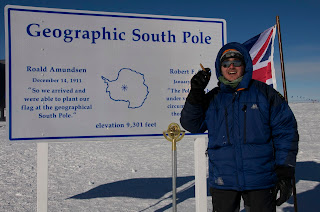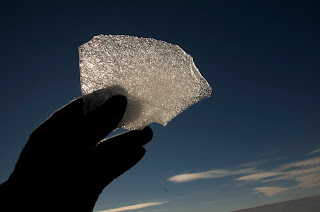Quarrying the Antarctic for climate

In 1773, Captain Cook described the great southern continent Terra Australis Incognita as ‘A country doomed by nature never once to feel the warmth of the sun’s rays but to lie forever buried under everlasting snow and ice’. But is it? We used to think of Antarctica being completely insulated from the rest of the world, effectively stuck in an ice age which most of the planet finished with 12,000 years ago. Disturbingly, there are signs that the image we’ve conjured up in our minds of a frozen continent is fast disappearing. Across this vast region, the last few decades has seen trends above and below the ice that are far from encouraging. Warming has been observed across large parts of the continent and it seems most probable its down to our high-energy lifestyles that has seen us flood the atmosphere with carbon . We even made it to the Pole for the centenary of Scott's arrival! Thanks to ALE. Unfortunately, Antarctica’s connection to the rest of the world means this sp...

